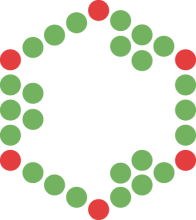Opinion: The Inventive and Creative Industries - Patents and Copyright
Modern Drug Discovery is tough - too tough and expensive for many to actually stay the course.
In response to the painfully low innovation, productivity and return on investment from both private and public sectors, are a number of visionary programs and initiatives, attempting to change the dynamics, economics and participants in drug discovery - an example, in the US, is the NIH initiative to speed translational science from lab to clinic - NCATS. However, at times of pressure on research budgets, the community support and smooth progress of such actions are far from certain.
Other ways of lowering overall healthcare costs and/or incentivising innovation/investment are actively being explored. One central element is that of patent life - some argue for it to be longer (typically companies who wish to preserve their monopolies) and others argue for it to be shorter (patient groups/healthcare providers who wish to benefit from the low prices of generic medicines). In the US there are recent proposals to shorten patent coverage on drugs - this could save a lot of money (or at least can readily be explained in a way that appears to), but will it really provide the incentives for investment in new pharmaceuticals? When launched under a shorter exclusivity period the prices will naturally become higher in order to 1) recoup R&D costs or 2) provide satisfactory returns for investors (delete one of these dependent on your particular viewpoint!) over the shorter period. This 'naturally' higher price, and then the drop in prices as a drug becomes generic will appear to make it appear that drug companies are gouging consumers/patients even more!
It really is a lose-lose position for all sides, but there is a significant risk that patients (you, me and our families) with horrible diseases like Alzheimer's, stroke and cancer will pay the ultimate price, as we inadvertently kill the goose that lays the golden egg.
In very sharp contrast to the pressures to reduce the commercial protection of drugs (from 12 to 7 years in the US) are recent changes to the protection of copyright material. Commercial protection will extend from 50 to 70 years in Europe - otherwise many profitable works from The Beatles/The Who/The Rolling Stones would have entered the public domain, and the artists would potentially fall on hard times. The other odd thing about 'creative works' compared to 'inventive works' is how the families/estates of creative artists can somehow inherit these rights. There is a pretty ironic quote from Mick Jagger in the BBC news article referenced above.
"[The royalties] can extend their lives and the lives of their families who inherit their songs."
Don't get me wrong, I love creative works, I love recorded music. I have amassed a large collection of physical media that I regularly listen to. I love cheesy and serious artistes from the 1980's - they are as much part of my everyday life as statins and aspirin (and even more than Cigarettes and Alcohol); but honestly, are the efforts of scientists and engineers really worth less than those of a guitarist or lyricist (and the interests of the multinational conglomerates that employ them)? It is surprising, to me, that regulators/governments etc. are prepared to extend copyright (and other associated forms of commercial protection) to 'creative works' that have little tangible benefit to society - Lady Gaga or Imatinib?
Why is there a fundamentally different perception by both the public and governments of these two vested interest groups? Why is the lobbying of the creative industry so much more effective than that of the inventive industries? What can scientists, inventors, and entrepreneurs learn from the lobbying of performance artists? Why are there no longer any cool TV shows?
Note 1: For the non-UK residents, the picture above is of Cliff Richard, a 'mature' popular music star, at the forefront of efforts to extend copyright.
Note 2: To be clear, the views expressed above are my personal views, and do not reflect those of my employer.

